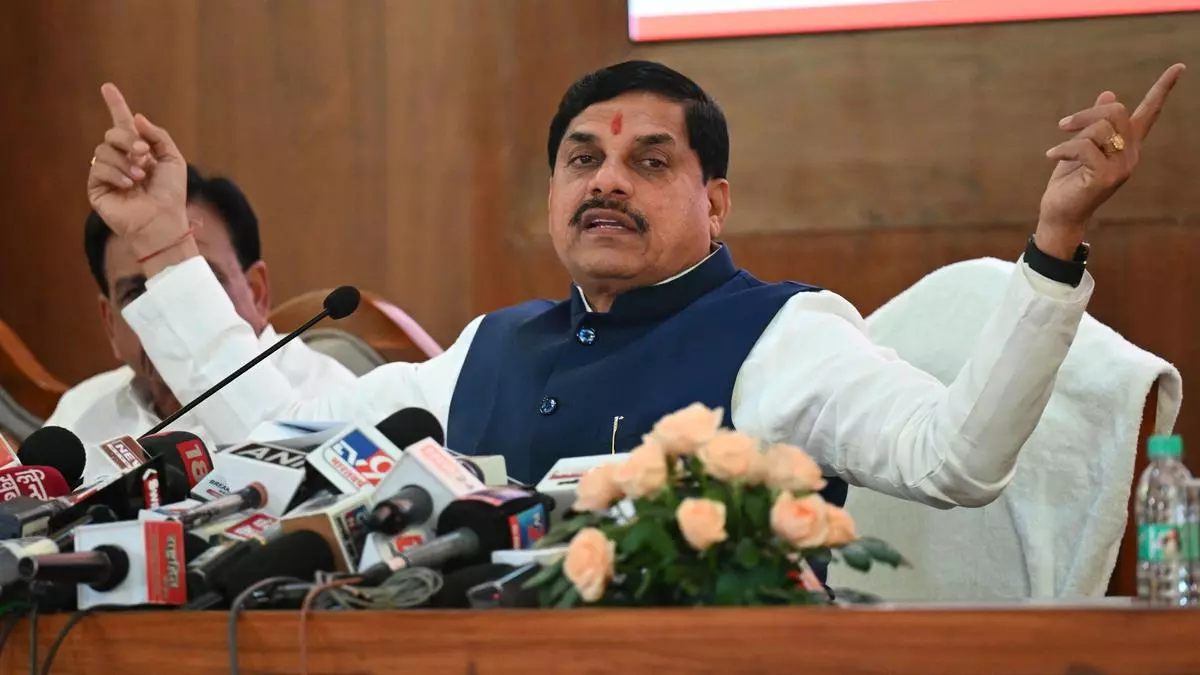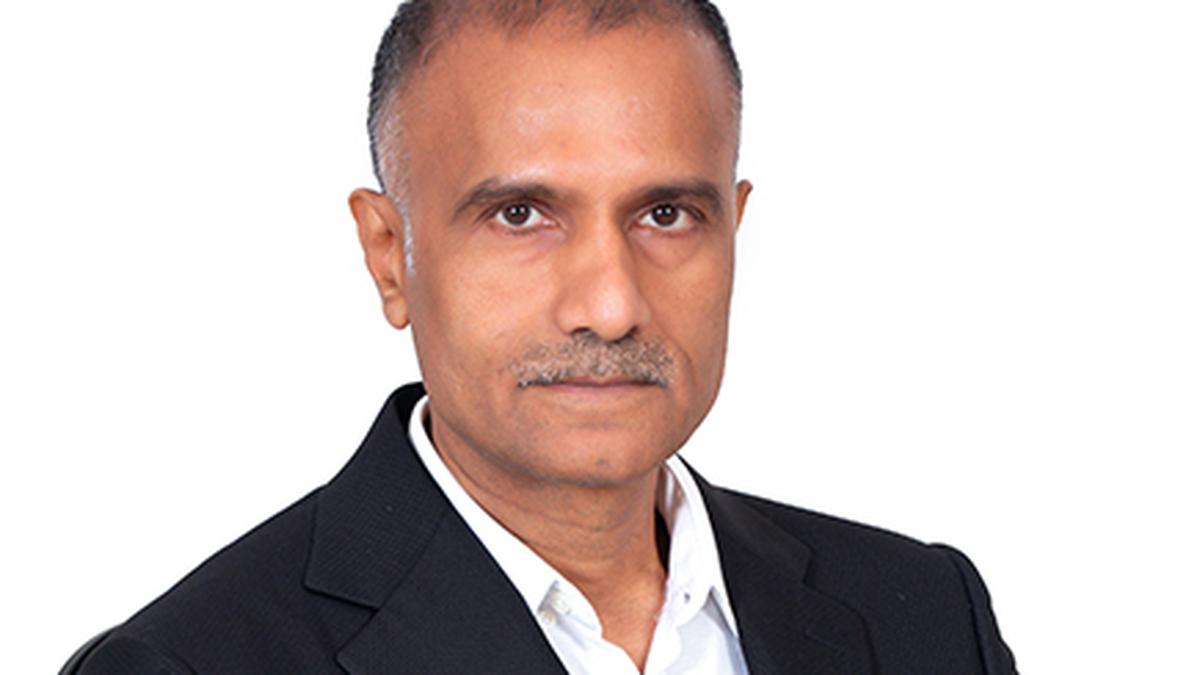With just months left for India’s general election, Rahul Gandhi, a senior leader of the opposition Congress party, has embarked on a 6,700km (4,163 miles)-long march across the country. It comes nearly a year after Mr Gandhi wrapped up a 4,000km-long ‘unity march’ in which he travelled from the country’s southern tip in Kanyakumari to Srinagar in Indian-administered Kashmir in the north. The journey this time would see him travel from east to west, by bus and on foot. He plans to cover 100 parliamentary constituencies across 110 districts in 15 states, many of them electorally crucial, and finish in Mumbai in 66 days.
On Sunday, Congress flags fluttered in the air as Mr Gandhi addressed a rally that kicked off his Bharat Jodo Nyay Yatra (United India Justice March) in Imphal city, capital of the north-eastern state of Manipur.
Over the past eight months, Manipur has witnessed violent ethnic clashes between its majority Meitei and minority Kuki communities. More than 200 people have been killed and thousands of families displaced by violence. But on the sunny afternoon, thousands of women cheered as top Congress leaders addressed the crowd amid massive security presence. Among them was Waikhom Ibemma Devi, who reflected on the tough life in the state. ‘Whenever I go to a relief camp, I feel sad looking at the victims,’ she said.
‘Many analysts and Congress supporters such as Tehseen Poonawala say last year’s unity march had burnished Mr Gandhi’s political image, ‘recharged party workers and gave the Congress organisation, often criticised for being lethargic, a shakeup’. They expect the current campaign – aimed at demanding economic, social and political justice for the masses – to do the same.
The march comes as the opposition faces the challenge of preventing the widely popular Prime Minister Narendra Modi from scoring his third consecutive victory. A recent survey has predicted he will retain power.
‘As the battle for 2024 begins in earnest, the incumbent BJP [Bharaitya Janata Party] undeniably maintains the upper hand,’ said Milan Vaishnav, a senior fellow at the Carnegie Endowment for International Peace.
The BJP has long painted Mr Gandhi as a non-serious politician born into privilege. Last week, senior party leader Ravi Shankar Prasad said, ‘Rahul Gandhi is not taken seriously in our country.’
Following the Congress’ recent losses in three state elections, the BJP now rules 12 of 28 states in India with coalition governments in three. The Congress, which ruled India for decades after independence in 1947, has been reduced to three states.
The opposition says that under Mr Modi’s 10-year leadership, there’s been a backslide in democracy and civil liberties, misuse of federal investigative agencies, bulldozing of government institutions and a proliferation of a culture of hate and violence against minorities and marginalized communities – allegations the government strongly denies.
In such a politically charged environment, it’s no surprise that some, including former Congress spokesperson Sanjay Jha, are calling the next elections a ‘do or die situation’ for the opposition.
The party believes that Mr Gandhi’s justice march and the choice of strife-torn Manipur to kick off the campaign will help them gain public and media attention.
The violent conflict in the tiny state, which has long been on the fringes of Indian politics, made headlines and sparked global outrage in July when a video showed two naked women being paraded and molested by a mob. Prime Minister Modi condemned the incident as ‘shameful’.
But the Congress has repeatedly criticised Mr Modi for failing to curb the continuing violence and not visiting the state. And Sunday was no exception.
‘Why is the Prime Minister silent for eight months?’ Congress leader Jairam Ramesh told the BBC. ‘He hasn’t been in Imphal even for an hour.’
At the march, faith in politicians of all hues was low, but the attendees were hopeful of its impact.
‘Our Manipur is burning,’ party worker Maibam Sarda Leima said. ‘[But] we hope Mr Gandhi will understand our problems and talk about them.’
In the backdrop of the march, the Congress is involved in strenuous electoral negotiations among constituents of INDIA, a 28-member opposition alliance that includes regional parties of vastly differing political ideologies.
Many observers argue the alliance is still struggling to provide clear answers on seat sharing and a leader who’ll be a ‘counterpoint to Mr Modi’.
Then, there are hints of division in the alliance on the timing of the march.
KC Tyagi of Janata Dal (United) raised concerns about Mr Gandhi’s long absence from Delhi and its impact on the crucial seat-sharing talks, electoral campaigns, and plans to hold public gatherings to present a united opposition front.
‘This is not the time [for the march],’ he said. ‘If you are so serious about national integration, go for a long march in June or July [after the elections].’
But other alliance partners like Supriya Sule of the Nationalist Congress Party (Sharad Pawar faction) said Mr Gandhi’s march wouldn’t be an issue, and he would be available on the phone if needed.
The march began a week before Mr. Modi’s planned grand unveiling of the Ram Temple in Ayodhya on 22 January, to which top Congress leaders have refused invites.
The site, believed by Hindus to be the birthplace of Lord Ram, had been bitterly contested for decades by Hindus and Muslims. In 2019, the Supreme Court handed over the site to the Hindus to build a temple.
The BJP, which championed the cause for decades along with its ideological mentor Rashtriya Swayamsevak Sangh, has already mounted a large outreach programme for people to organize celebrations across the country.
Congress called the event the BJP’s ‘political project’ for electoral gains but added that religion was a personal matter and any Congress worker was free to attend it. Some top Hindu seers have also refused the invite, alleging violation of Hindu norms.
The BJP has called the Congress stand ‘anti-Hindu’.
The largely pro-government electronic media is intensely covering the grand event, and it would be interesting to see how the battle for media attention plays out heading towards the elections.










